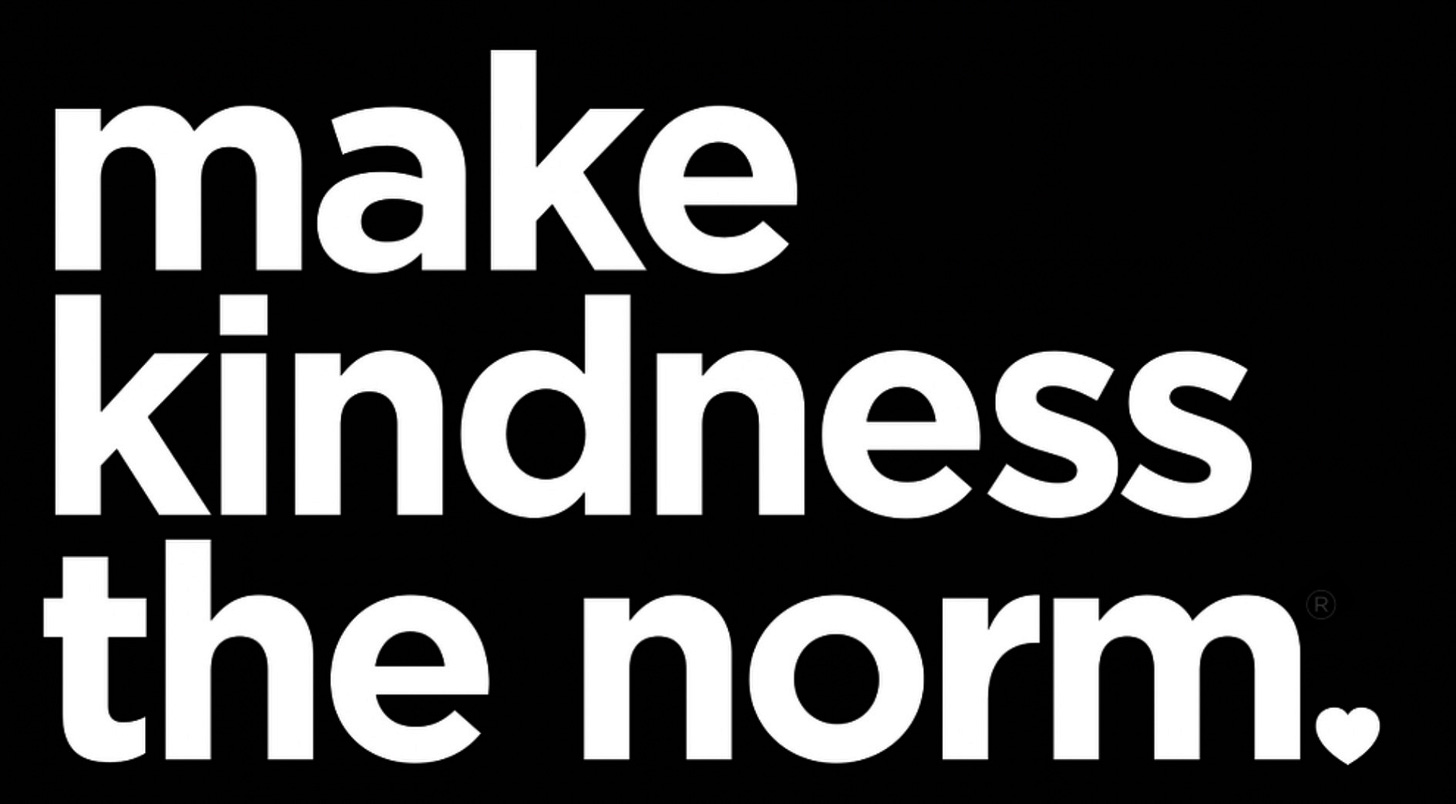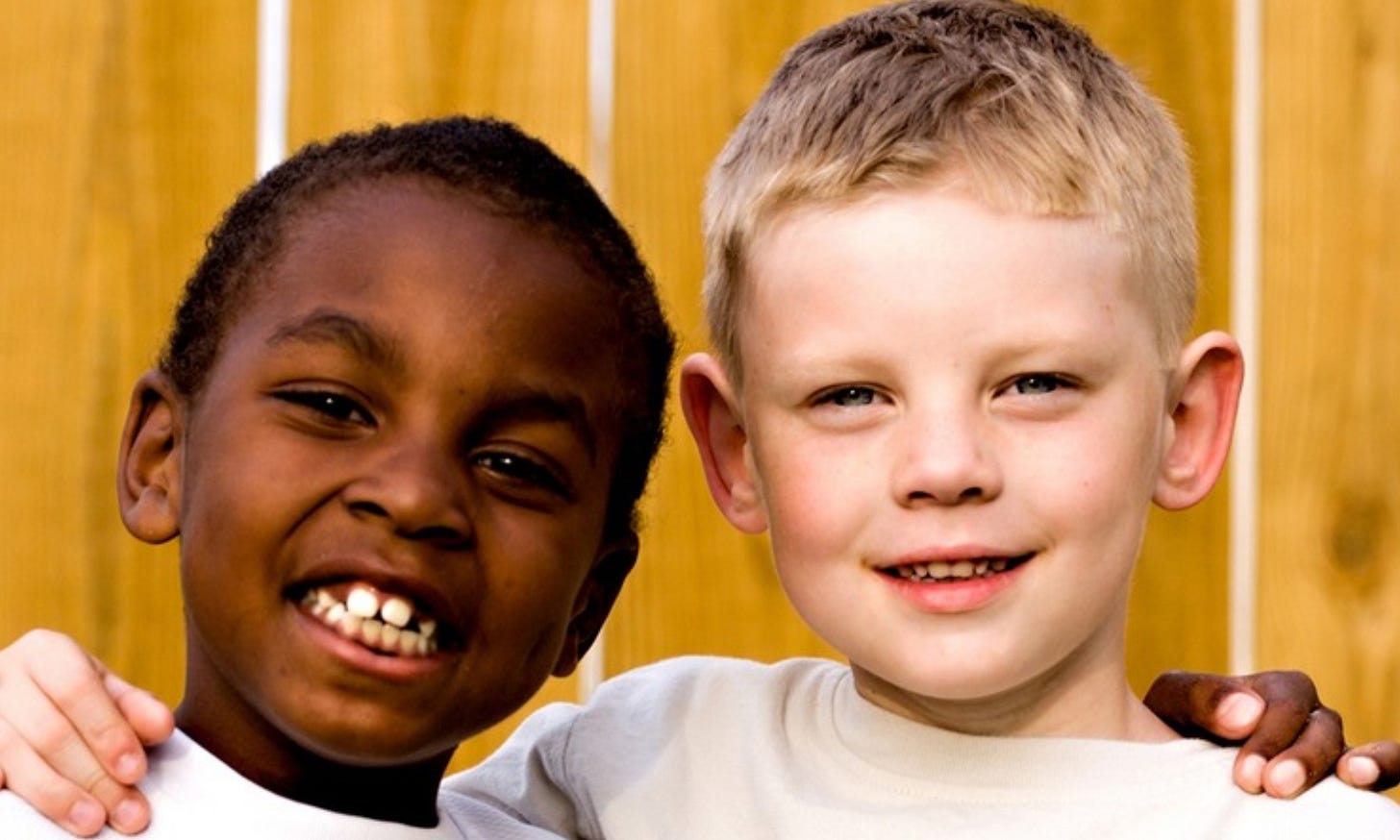Embody Contrarian Values!
An answer to the question ‘What can I do to make a difference?’
As dramatic policy changes unfold and Executive Orders are followed by Lawsuits and Court Directives so rapidly that it feels like serve and volley in a tennis match between executive and judicial branches of government, this moment can feel disorienting and disempowering, leaving many unsure how to respond. As new directions and policies are both vilified and celebrated through various media outlets, people are restricting their reading (or having it restricted for them through algorithms), so that we often live in unhelpful echo chambers. Shouting louder in our echo chamber won’t help anyone, including the shouter.
Almost nobody wants to hear this, but there are people of faith across the political spectrum who disagree about politics and policies. I will use this space to address the ethics and theology of various policies, as I always have, but not today because this article isn’t about whether policy reforms are needed. Of course they are - at the border, in bloated agencies, in management of finite resources.
Instead of policy debate, today I offer a plea to Christ followers across the political spectrum: Make Embodying the Values of Christ your highest priority in these days. I assure you that in doing so, your values will be contrarian to those prevailing in politics and much of culture. Making contrarian values visible is desperately needed right now. St. Francis most famous prayer could easily be read a call to embody contrarian values:
Lord, make me an instrument of your peace:
where there is hatred, let me sow love;
where there is injury, pardon;
where there is doubt, faith;
where there is despair, hope;
where there is darkness, light;
where there is sadness, joy.
Debates should be happening about taxes, budgets, immigrants, health policy, and a thousand other things, but these debates, important as they are, are currently so loud that we can’t hear the seismic cultural shift that’s happening right in our midst, a shift will bring the real and lasting damage if nobody addresses it. The cultural shift I’m talking about is a shift in values. Francis, like Jesus, understood that there are times when values that are accurately called ‘godless’ rise up and take over. It happens in families, businesses, churches, and nations. When it happens, regardless of a group’s loud declarations that they are Christian, their embodied values declare differently and the damage perpetrated by toxic values is both real and lasting. Just ask Germans and Rwandans who saw their cultures implode, implosions which began not with building new policies, but with forsaking timeless values.
Our culture is presently shifting into a passive mass acceptance of cruelty, deception, and cynicism, accepting these values as normal because our politics and response to our politics is saturated with these values, which are utterly contrary to the ways of Christ and, by extension, off limits to his followers. Unfortunately, history shows us that negative values are highly contagious. They are often passively adapted merely by proximity as they become the new norm and our hearts become desensitized. And make no mistake, all of us are proximate to these bad values just now.
The good news is that as these toxic values become more pervasive, people who embody the healthy alternatives will shine as lights, creating a longing and awakening imaginations to the better alternatives that are Christ’s kingdoms values.
That’s why embodying contrarian values is perhaps the single most important ‘task’ you can be doing right now. In these next posts I will address contrarian values as follows.
In a world of cruelty, embody kindness
In a world of deception, embody truth
In a world of cynicism, embody hope
We begin with this:
In a world of cruelty, embody kindness
The LORD has brought charges against you, saying: “There is no faithfulness, no kindness, no knowledge of God in your land. Hosea 4:1
Did you know that in the world of development work there are Americans around the world who have been killed in the line of duty, distributing food, medicine, and seeking to grant security to refugees in dangerous places? Their lives were memorialized through photos of them placed on a wall in the USAID entry area. That wall is already gone, the memories of those servants literally painted over without a word of public acknowledgement or thanking them for their service. Cruelty.
Did you know that a development agencies are now dealing with countless numbers of people who had approval for resettlement to America as they were fleeing terror in Central America? They had quit their jobs and sold their houses to pay for the trip, and then, with the stroke of pen, had their prior approved resettlement revoked, leaving them without work or home in their native country, and offering no help regarding next steps. Cruelty.
You’d get tired of the long list of cruelties if I kept going, including the practice of ‘name calling’ which has become appallingly normal, accepted, and celebrated in this political environment. It’s a cruelty that elementary and middle school teachers seek to squelch among those under their care, knowing that it has no place in a mature adulthood, and yet we now receive it almost daily from the president. Cruelty isn’t necessary in order to enact new policy. But being cruel sends a message, and the message is that the lives of certain people don’t matter, or at the least that they don’t matter as much the people with power. It’s dehumanizing, objectifying, and in no way represents the values of Jesus.
So, in a world where cruelty is normalized and even celebrated, one of the most important things you can do is embody kindness. By doing so your life will stand in stark contrast to the high decibel megaphone of cruelty pumped through social media and news outlets. Your kindness and mine, and that of your faith community and family is desperately needed because it will, as the Bible says, cause you to ‘shine as lights’ in the midst of darkness.
Put on then, as God’s chosen ones, holy and beloved, compassionate hearts, kindness…. Colossians 3:12
What does Kindness look like?
Everyone know that kindness is life affirming, healing, encouraging, and easy to see whenever we encounter it. It’s someone visiting a declining senior and reading, laughing, praying with them. It’s finding a voucher on the floor of Costco, knowing that you could cash it in on your purchase and instead turning it in to the Costco service desk (so that my wife, who lost it, was able to recover it). It’s stopping to help someone in need, as in the story of the good Samaritan (the point of which is to tell people that the way of Christ is crossing social divides to show kindness, rather than deepening social divides by labeling and vilifying people). It’s helping a woman who accidentally drove a school bus down our street in the midst of a snow storm by putting chains on for her and guiding her back to the main road. It’s a friend investing great lengths of time and resource to help me get my wood stove to work in my office. It’s giving away center ice hockey tickets to a couple of kids in the their early twenties who are standing outside the arena. They’ve taken two ferries and traveled six hours to find they can’t afford scalped tickets. Standing outside the arena, a car drives up, a window rolls down, and within minutes they’re inside, thanks to the kindness of strangers. It’s the woman in Nepal running an orphanage for Tibetan refugees, and introducing them to literacy, food, warmth, love, and the grace of Christ. It’s a cup of cold water in Jesus name. It’s the Aurora Commons in Seattle, and Plant with Purpose in Haiti, and many other countries. It was much (not all) of what USAID was doing. It’s Doctors Without Borders. What it never is, is arrogant, demeaning of others, slanderous, or lording over another just because you have the power to do so.
Kindness is a pouring out of oneself and/or one’s resources in order to build up or encourage another. For another to receive, someone must be full enough to give. While I understand that there’s a sense of which the ‘giver receives more than she gives’ its also vital to stress that giving of any kind has a cost; time, money, emotional energy. Kindness doesn’t happen without some sort of pouring out.
When Hosea mourns the loss of kindness in the land, a larger contextual reading of his lament reveals that kindness dries up in cultures for a few different reasons, but perhaps the main reason is our believing the lie that our resources are too meager, too finite to share. In a scarcity model, negotiating is about creating winners and losers, and using power to gain more. We become protectionist and miserly rather than generous, joyful givers, of time, money, encouragement, and so much more that allows kindness to flower. If we live out from a scarcity mentality, or live in fear that we won’t have enough, our lives shrink and kindness becomes rare, especially kindness to strangers, let alone enemies.
When the systems in a culture become protectionist and use their power to extract from those with less, Christ followers’ call to kindness becomes even more important. And this call intensifies in importance still more when many ChristIans affirm actions that are the exact opposite of kindness.
The Soil in Which Kindness Grows
Every morning, in my ‘Forest Faith’ meditation, I envision the reality that I am ‘filled with the fullness of God.’ This isn’t some sort of hocus-pocus wishful thinking, or the placebo affect. The testimony of scripture and countless testimonies throughout the ages show me that for those willing to tap into the our truest identity, which is deeper than what we see or feel, and far deeper than any political identity we might wear, we can come to experience what Jesus promised: not just a life of enough for me, but the capacity to allow kindness to flow through me as a river… to neighbors, baristas, fellow board members, family, friends, co-workers, people on the margins, even enemies as I, having freely received, am now called and empowered to freely give.
Part of my Forest Faith prayer I the declaration that Christ is around me; I am connected. As I pray this, people come to mind who are in my life and I offer a prayer for them, and sometimes follow this up with a phone call or word of encouragement. This is just one way of embodying kindness, but however you do it, I challenge you to make kindness a value you intentionally embody every day, because whether intentional or not, there’s no shortage of cruelty in our world right now. Kindness, by its very presence, says, ‘there’s a different way, a better way, of being in this world.’
O Lord, whose kindness leads us to transformation…
Grant that we might have eyes to see where we can share a word of encouragement, or the gift of our attention and involvement, or simply a cup of cold water given to one who is thirsty. In world where cruelty is being normalized, grant that we might embody your ways and in so doing say, perhaps without words, ‘there’s a better, higher, truer way of being in this world’. And thank you for the adventure awaiting as we walk with you on the path of kindness. Amen
Please subscribe to receive the next installment of the Contrarian Values series: In a world of deception, embody truth



